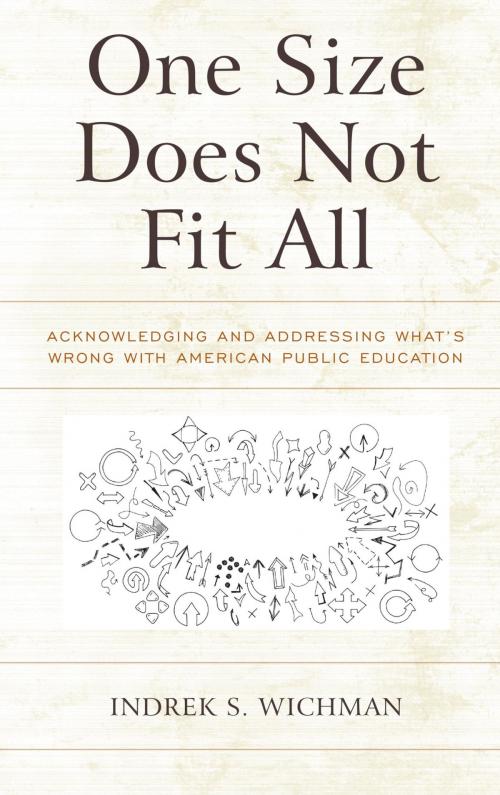One Size Does Not Fit All
Acknowledging and Addressing What’s Wrong with American Public Education
Nonfiction, Reference & Language, Education & Teaching, Educational Theory, Educational Reform, Administration| Author: | Indrek S. Wichman | ISBN: | 9781475835342 |
| Publisher: | Rowman & Littlefield Publishers | Publication: | November 30, 2017 |
| Imprint: | Rowman & Littlefield Publishers | Language: | English |
| Author: | Indrek S. Wichman |
| ISBN: | 9781475835342 |
| Publisher: | Rowman & Littlefield Publishers |
| Publication: | November 30, 2017 |
| Imprint: | Rowman & Littlefield Publishers |
| Language: | English |
Academic success requires talent (ability), which is not equally distributed among students. Almost all American undergraduates hail from K–12 public schools, based on the theory that everyone is academically educable. This has led to the one-size-fits-all system, which has underserved the less academically inclined students, a majority of the K-12 population. The theory that every student is academically educable, an unverified axiom of the current K-12 educational paradigm, has not been subjected to serious scrutiny. Consequently, little progress has been made toward curricular revision except tweaks of the existing system, currently the world’s most expensive. However testing, classroom performance, teacher assessment, advances in human biology and, most importantly, family and community experience, suggest that it is possible to determine who is suited for an academic or a technical education. Once that hurdle is crossed, the question of how to best educate/train/prepare America’s non-academic youth can be thoughtfully, practically and compassionately addressed.
Academic success requires talent (ability), which is not equally distributed among students. Almost all American undergraduates hail from K–12 public schools, based on the theory that everyone is academically educable. This has led to the one-size-fits-all system, which has underserved the less academically inclined students, a majority of the K-12 population. The theory that every student is academically educable, an unverified axiom of the current K-12 educational paradigm, has not been subjected to serious scrutiny. Consequently, little progress has been made toward curricular revision except tweaks of the existing system, currently the world’s most expensive. However testing, classroom performance, teacher assessment, advances in human biology and, most importantly, family and community experience, suggest that it is possible to determine who is suited for an academic or a technical education. Once that hurdle is crossed, the question of how to best educate/train/prepare America’s non-academic youth can be thoughtfully, practically and compassionately addressed.















